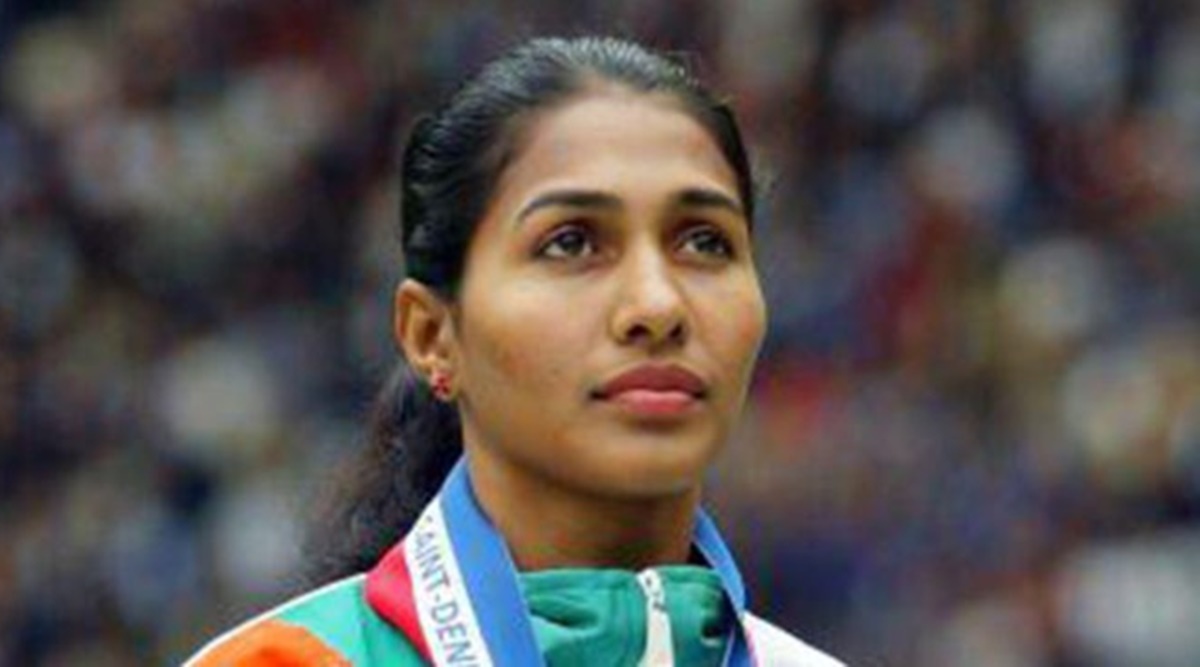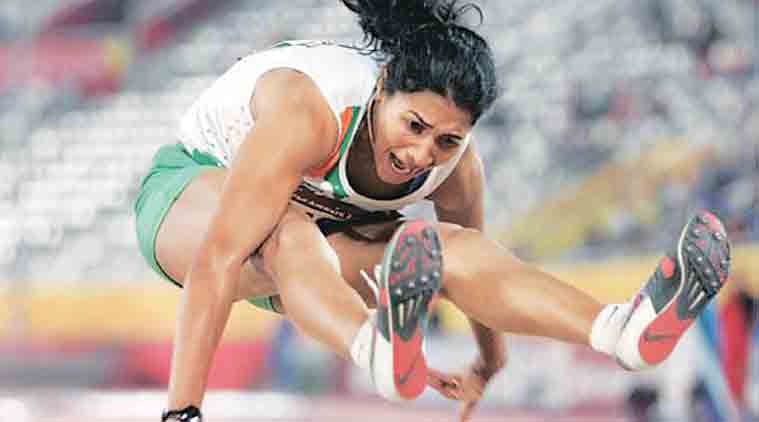India's only medallist at the World Athletics Championships tweeted on Monday about winning the historic bronze at Paris in 2003 just after she got to know she had only one kidney.
Closely monitored water intake to prevent dehydration, staggered training sessions to allow more recovery time, keeping a close watch on protein consumption and avoiding strong pain-killers were precautions long-jumper Anju Bobby George took when competing with one kidney.
India’s only medallist at the World Athletics Championships tweeted on Monday about winning the historic bronze at Paris in 2003 just after she got to know she had only one kidney. The condition called Renal Agenesis, which can be detected from an ultrasound, has a 1 in 5,000 incidence, according to medical experts.
Anju consulted doctors when she suffered from fatigue, swelling and joint pain on her comeback in 2001 following injury. For the couple, Anju and husband and coach Robert Bobby George the finding came as a shock. Multiple doctors came to the same conclusion: She had only one kidney.
“Doctors said I would be fine during normal life, but if I strained physically, the body’s reaction could change. It depends from individual to individual,” Anju said. “We adjusted the workload in such a way that I did not feel the strain. Because if there was strain there was fatigue and it would take a long time for me to recover. If I didn’t recover properly, then it would affect my performance. When fatigue set in, I would find it difficult to even walk on some days. I could not take painkillers as I would feel dizzy.”
The husband-wife team braced for an uncertain future.
Robert had motivated her to travel to Paris though she experienced severe fatigue and bloating after competing in six competitions in Europe just before the World Championships. “Robert is the one who managed everything, be it diet or training,” Anju said about what measures she had to take to compete successfully at the highest level with a solitary kidney.
Water intake
Robert recalls the training sessions in California with World-record holder Mike Powell before the World Championships. “It was very hot in May-June so it was important that Anju does not get dehydrated because any type of protein synthesis’s by-product is uric acid. We increased the water intake during training sessions once we knew she had one kidney. From one litre, we used to carry about 2.2 litres per training session. She may not be drinking it all, but it was important that it was available,” Robert said.
Water is important to maintain the health of the kidneys, which flushes out uric acid into the urine. Build-up of uric acid in the blood can lead to inflammation, which Anju experienced at times.
Not drinking enough water, according to medical experts is harmful for those with Renal Agenesis be it an elite athlete or a 9 to 5 office-goer.
“Don’t get dehydrated, drink good water, avoid taking strong medicines or pain killers and go for regular check-ups,” Dr Sunil Prakash, director and head of nephrology & kidney transplant at BLK super-speciality hospital in New Delhi, says.
Protein monitoring
Athletes have to watch their protein intake too, Dr Prakash said. One gram of protein for each kilogram of body weight is the recommended consumption of protein per day. If a person weighs 70 kilograms, about 70 grams of protein a day is ideal. “Understandably sportspersons’ intake of protein is higher because they have to train and build muscle,” Dr Prakash said.
Robert would moderate Anju’s protein intake depending on the intensity of the training session. “High protein was always a concern. We would try to keep it at about 80 per cent of the requirement. A top athlete needs between 2.5 grams and 4.5 grams of protein per kilogram of bodyweight. We would also keep consumption of supplements to minimum possible level,” Robert said.
Anju would often get headaches, Robert says. She suffered nasal rhinitis (cured following surgery), a dust and pollen allergy which causes running nose, itching and swelling of the mucous membrane. “When she got headaches, I was worried because I was not sure if it was because of nasal rhinitis or dehydration. So water intake was crucial. Too much was also not good.”
Smart training
Robert kept an eye on how Anju was coping with recovery between training sessions. During the initial consultation with doctors they were told how her body might react to high-intensity training was ‘unpredictable’.
From six days a week, training was brought down to 5. 14 sessions over seven days became 10 and at times even lower, depending on how Anju’s body was coping up. “Smart training sessions which combine activities, instead of longer ones. We had to find the right balance,” Robert said.
Anju tweeted about making it to the top with a single kidney to motivate people to overcome hurdles, especially during the pandemic. She also wanted to encourage parents to not worry about ‘minor issues’ children face when they start training in a sport.
Source: Read Full Article



